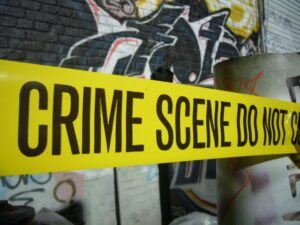Criminal Justice programs focus on the laws, processes and structure established to control or reduce crime, to enforce social order as established by law and to protect citizens from injustice. Students in criminal justice programs prepare for a career in either the city, county, state and federal government levels in law enforcement, the court system or the prison system.
Laws enacted by the legislatures on these various levels of government are enforced by appointed or elected law enforcement personnel. On the federal government level, a number of specialized agencies enforce the laws of the land, including the FBI, the Drug Enforcement Administration, the Bureau of Alcohol, Tobacco, Firearms and Explosives, the U.S. Marshals Service, Customs Department, Immigration and Naturalization. On an international level there is the U.S. National Central Bureau Interpol.
The laws are applied through the courts systems, which seek to see that justice is served while also protecting the rights of individuals. The rulings of the courts are applied by a prison or corrections system. When convicted criminals are released from a rehabilitative or correctional facility, their re-entry into society is monitored by the probation department until they are considered fully integrated into society.
Students can expect to study law, criminal investigation techniques, psychology, sociology, negotiation techniques and the various processes and systems used to support the functions of the criminal justice system in society. In addition, they can expect to study the history of law enforcement, criminology, sociological and psychological roots of crime, legal policy.
Careers for criminal justice program graduates include: law enforcement (police), corrections, probation officers, criminologists, crime scene investigation, forensic psychology, court administration or various capacities with the Central Intelligence Agency.

